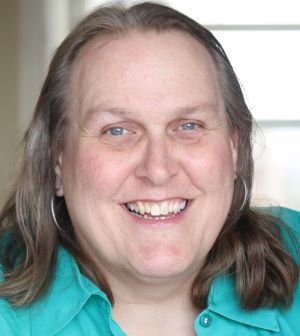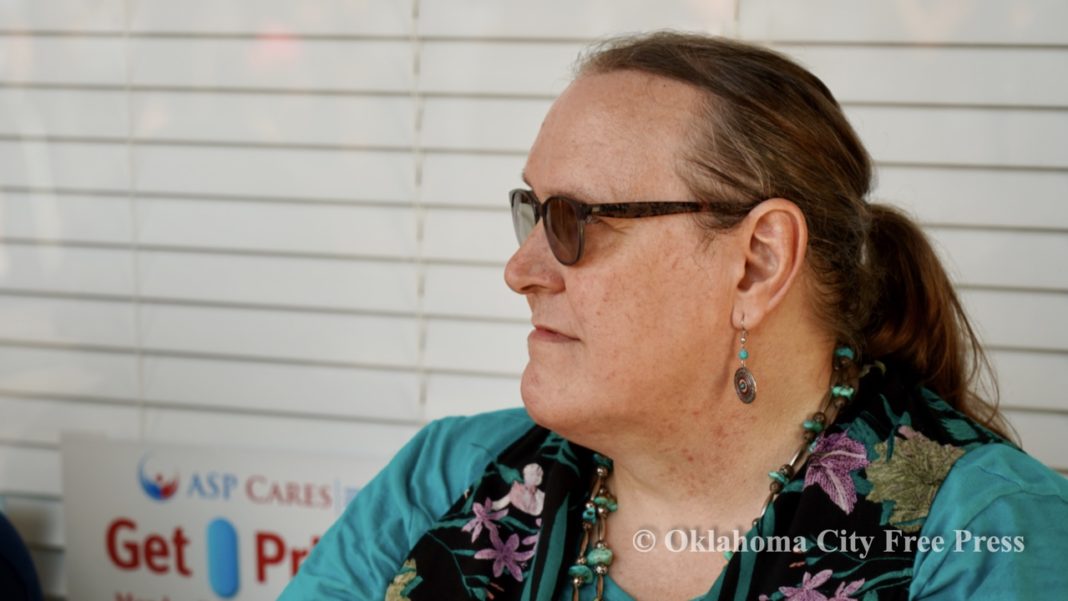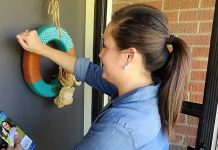Last Updated on January 5, 2024, 12:56 AM | Published: November 26, 2021
Paula Sophia Schonauer, LCSW, continues a serial memoir. If you haven’t read the earlier parts of this series, follow the links at the bottom of this page.
I am holding on to so many things, taxing my memory for understanding, a morsel of insight about why I am the way I am. As I write, I am piecing my life together like a puzzle, and sometimes, when my memory does not provide details, I reconstruct things to help them make sense. It’s like telling someone about a vivid dream, one of those dreams with lots of imagery and emotion but lacking continuity. In the telling, our brains try to make sense of the chaos, to order what would seem disordered to another person if faithfully rendered.
Our survival as human beings depends upon our ability to discern order in an otherwise chaotic environment. We notice the tiniest details, explore the vaguest nuances, and where we have no direct recollection, we construct a framework of understanding in our search of meaning.
To say the very least, my childhood was chaotic, nothing reliable: not love, not security, not religion, not even my identity. I constantly sought affirmation, hoping I could decipher the behavioral code that would guarantee at least a shot at unconditional love, and if I could not have unconditional love, I would settle for qualified love.
As I persisted through my elementary education at Redeemer Christian School, I began to have some success at figuring out the code of conduct, the right words, the right behaviors. I could talk like a Christian, and, generally, I could behave like a Christian, but I never felt fully accepted as a Christian. My hand-me-down clothing was a little dingy, not as sharp as the clothes most of my classmates wore. I was not as clean as my peers, both bodily and psychologically. Like Esau, I felt part of a chosen lineage but denied as an heir to the covenant of God, a victim of favoritism left to wander, anonymous, and forgotten.
Even as I was conforming to the mold of expectation for a Christian boy, I was trying to please Dad by being the boy he desired, and, of course, his expectations were not consistent with a Christian upbringing, all the pornography, the cussing, and fighting, the violence. Dad was grooming me to be like himself, but it seemed I could never please him. For one thing, I was not good at math, not in the way he wanted me to be. He wanted a prodigy while I struggled to learn fractions and long division like many kids my age. However, when it came to language and writing, I did excel – a problem for him, not industrial enough. When I defended my report cards with average to good grades in math but exceptional grades in spelling and writing, he would say, “You don’t build things with words.”

To gain more acceptance from the boys in the neighborhood, I began playing streetball, and I got good at batting and even better at catching. Sometimes, Jeff, Donut’s neighbor friend, invited me to shoot baskets with him in the driveway behind his house. He told me he’d give me a five-dollar bill for every basket I scored against him in one-on-one games. He was stingy, and I was awkward, big for my age and not a natural athlete. We played on and off for weeks before I finally scored against him, a forward on the junior varsity team at Cuyahoga Falls High School, and he was as good as his word, giving me a crisp five-dollar bill.
“Do you want to try for another?”
And we played again and again, Jeff increasing his effort as I increased my abilities: shooting, dribbling, rebounding, and driving. Through these games, I learned how to regulate my emotions and how to forge endurance and determination. It was another several weeks before I scored again, winning another five-dollar bill.
When I told Dad I liked playing basketball and baseball, he shook his head, frowning. “I don’t want you to be another jock brain.”
At one point, I signed up for a basketball clinic at school. It was a kind of tryout for the school team, and we earned points for the various drills we had to do, dribbling through a cone course, passing, rebounding, and shooting baskets. When they tallied up the points, out of more than a dozen boys, I came in fourth place, no medal but I had done much better than I thought I would.
“Good job at the basketball clinic,” Mr. Haus muttered to me the next Monday morning when I went outside for recess.
“What?”
Mr. Haus frowned at me, ever the stern disciplinarian. Fog drifted from his mouth. It was cold that day. He wore his fur cap and had a black “muffler” wrapped around his neck. He refused to call it a scarf. Scarves were for girls.
“Thank you, sir.”
Mr. Haus grinned, one of the first times I ever saw him do so, and it was aimed at me. I felt a stir of pride.
One day while shopping at the Sparkle Mart for Mom, I saw an advertisement on the community bulletin board for kids interested in playing baseball for the Cuyahoga Falls Amateur Baseball Association (CFABA). I noted the time and place for signup, and I vowed to be there. The problem, though, was getting permission from my parents.
When I got home, I was excited but cautious.
“What are you so happy about?” Mom said, her voice monotone, aloof. She had not been having a good day. Years later I would learn to associate that tone of voice with her being stoned on pain pills.
“They’re looking for kids to play on baseball teams,” I chirped.
“So?
“I want to play baseball.”
Mom took a drag on her cigarette, smoke gathering in clouds around the curlers in her hair. She was still in her bathrobe and house slippers, the TV tuned to General Hospital.
“They’re having sign-ups at City Hall.”
“No,” Mom said.
“But other kids get to play, and there’s no money to sign up.”
“You’re not other kids.”
She was right; I was not like other kids, but I did want to play baseball. I should not have asked her when I recognized her mood, but I was too excited, too hopeful.
We argued, Mom, yelling at me about how ungrateful I was, telling me how selfish and lazy I was, that I should be at home doing my chores. I yelled back that I had been doing a chore when I went to the Sparkle Mart, but she accused me of playing around, of not being focused. Otherwise, I would not have seen that CFABA advertisement.
She grounded me for two weeks and sent me to my room. I stomped upstairs yelling about how unfair things were, about her admonishments for me to “act more like a boy” before I learned how to box, but now she was holding me back, wanting me to tend to her needs while she sat and stared at the television.
When the time came, I went through Mom’s papers, found my birth certificate, and forged a note from Mom telling the CFABA people I had her permission to play baseball. My handwriting was a lot like hers, except I was better at spelling. I snuck out of the house and went downtown to sign up. After that, I waited for a phone call from the coach of my assigned team.
So many things, I still remember, and I do not know if that is good or bad. Some people suffer trauma and cannot remember their childhoods. Some are preoccupied with their childhoods, unable to move on and grow up. I’ve grown up, but I can recall things that happened like they were yesterday while other things have been inaccessible, that is until recent years through the combination of therapy and knowledge about life. I have tried to sum things up, but the math does not work. Then again, I’ve never been good at math.
Previous episodes
- Manhood, from the inside out — Memoir and Mythology
- Part 2 — Cubby Hole
- Part 3 — Magic Carpet Cocoons
- Part 4 — Snips and Snails and Puppy-Dogs’ Tails
- Part 5 — Mirror
- Part 6 – Deep Water
- Part 7 – Limbo
- Part 8 – Dissociation
- Part 9 – Shame
- Part 10 – Judgement Day
- Part 11 – Inferno
- Part 12 – Haunted
- Part 13 – Did I say that?
- Part 14 – The end times
- Part 15 – Alone again (naturally)
- Part 16 – Welcome to Grey Town
- Part 17 — Stigma
- Part 18 — Turning the other cheek
- Part 19 — Malingering
- Part 20 — Rorschach
- Part 21 – Soft hands
- Part 22 — How real men talk
- Part 23 — Crash landing
- Part 24 — To make a fist
- Part 25 — To hurt another
- Part 26 — Showdown
- Part 27 — Savage aggression
- Part 28 – Heroic
- Part 29 — Fear of death
- Part 30 — To be an android
- Part 31 — Too old for toys
- Part 32 — Her eyes
- Part 33 — A bedtime story
- Part 34 –- Sacrifices
- Part 35 — don we now our gay apparel
- Part 36 — Aspirations
Guest Columnist Paula Sophia is a licensed clinical social worker in Oklahoma City and a former Oklahoma City Police Officer.







